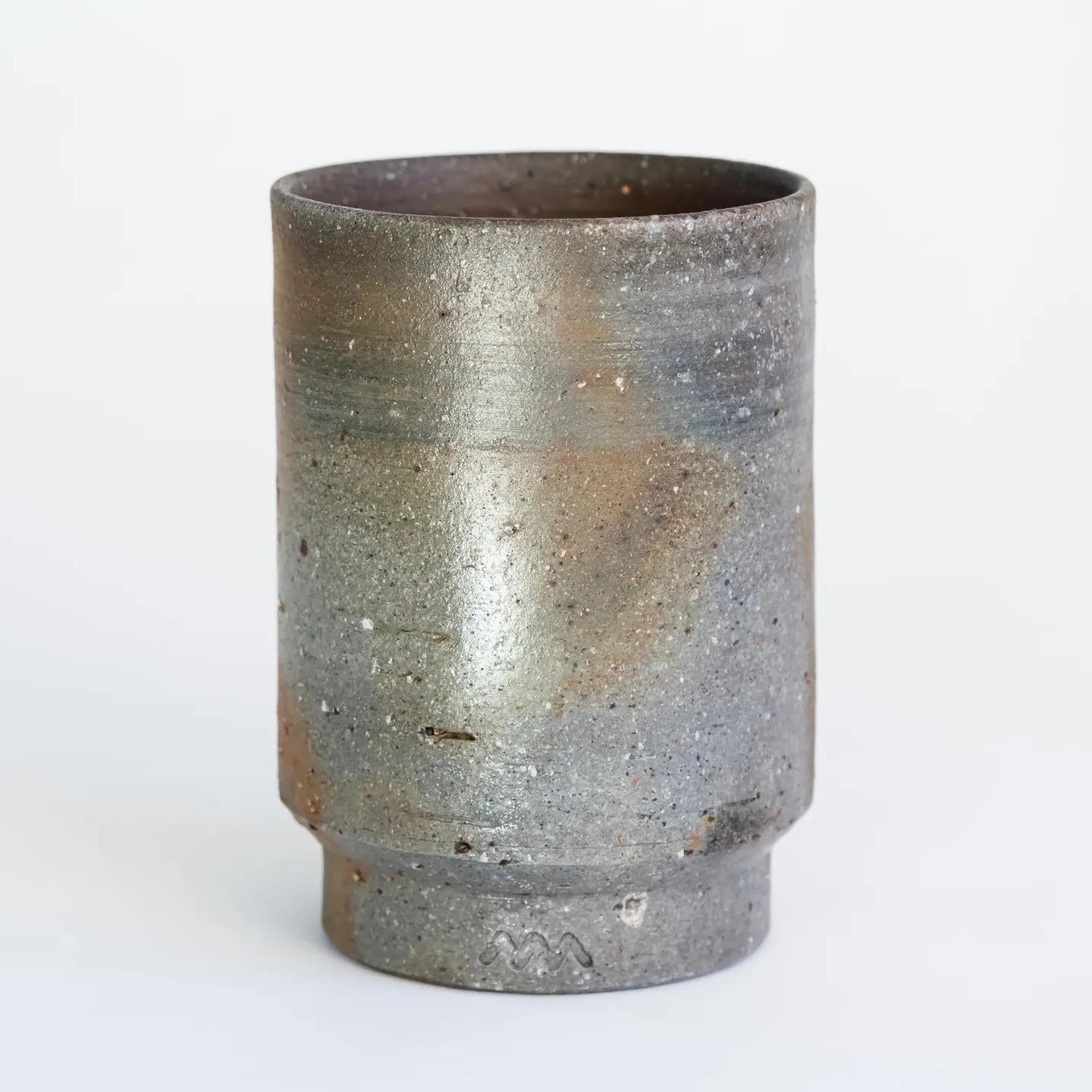
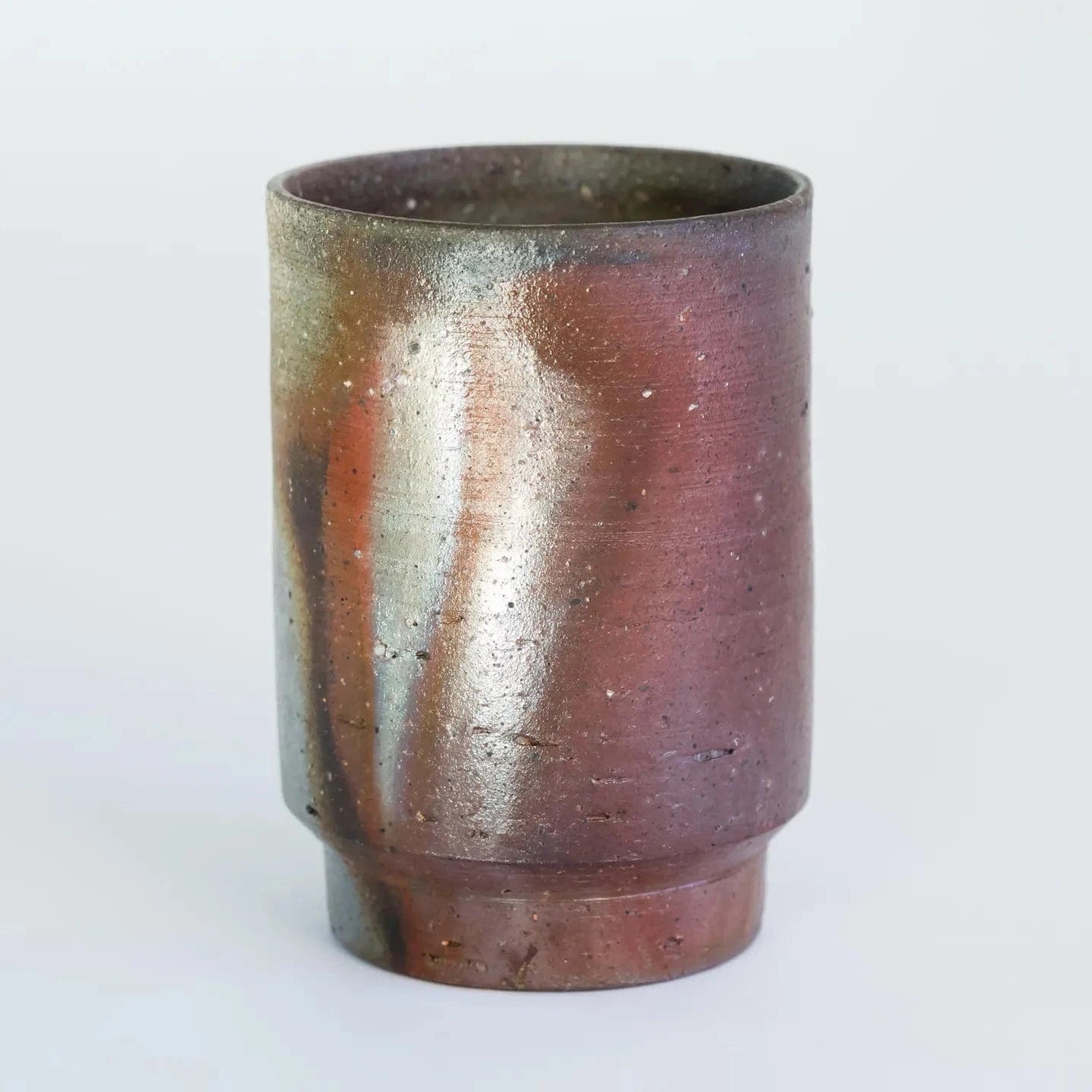
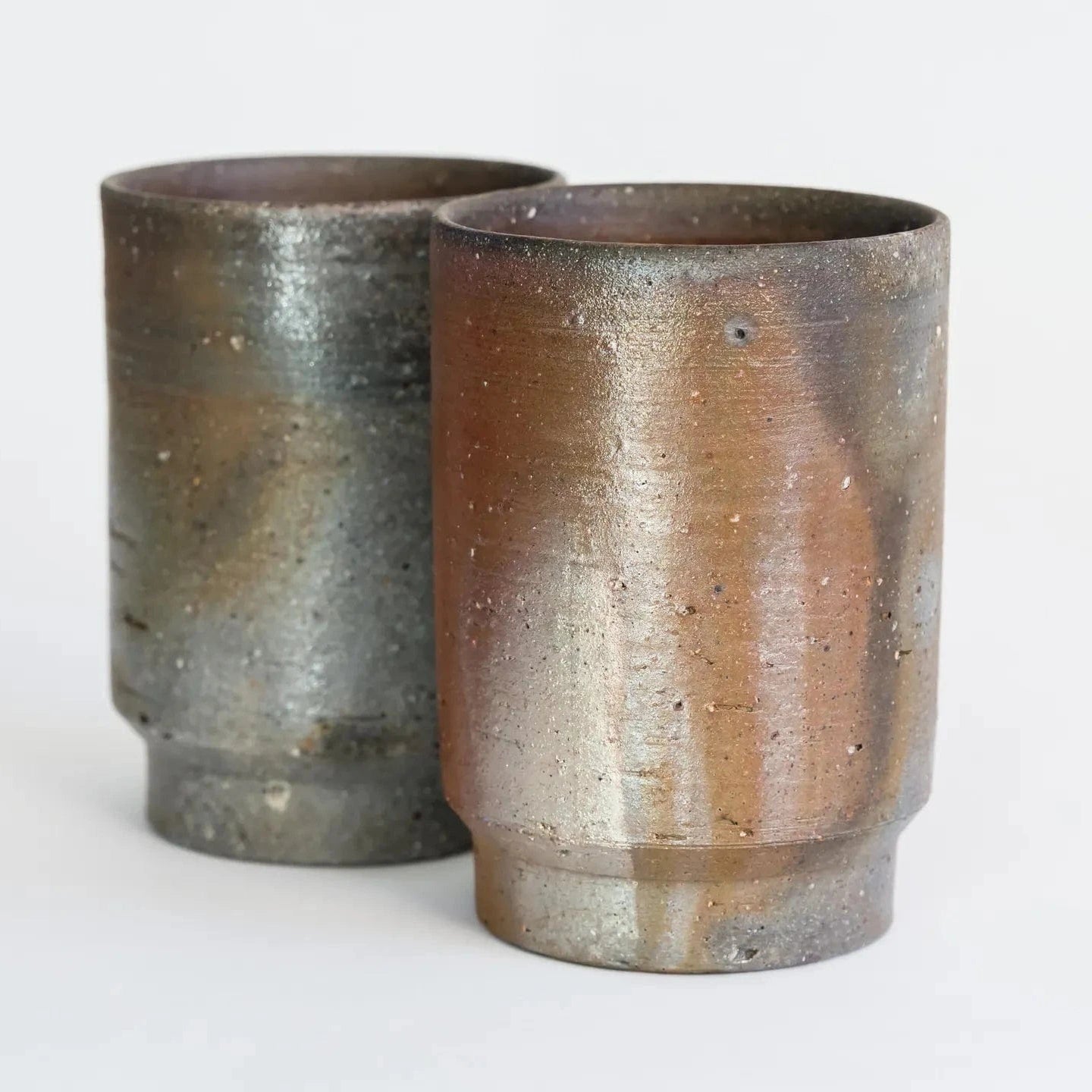
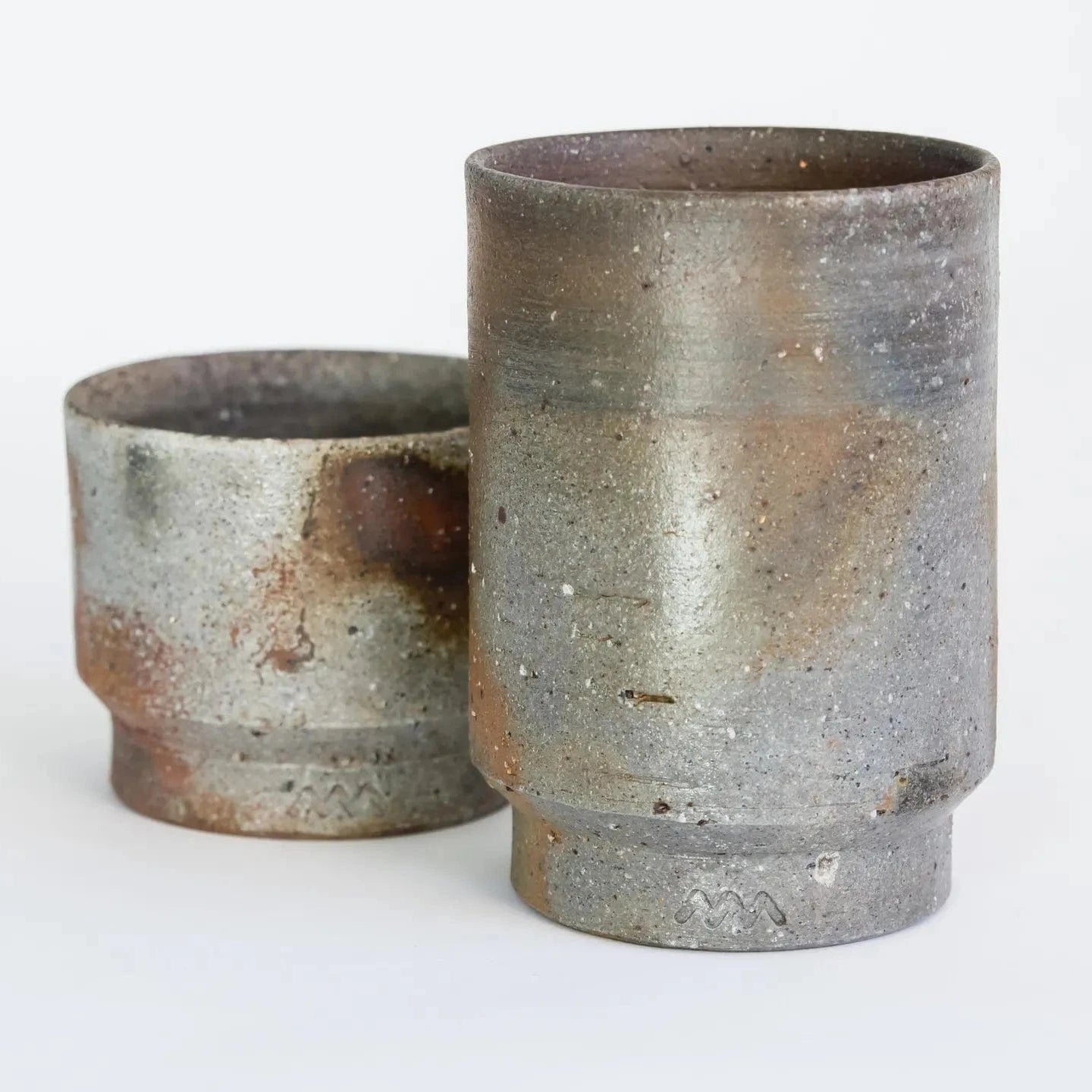
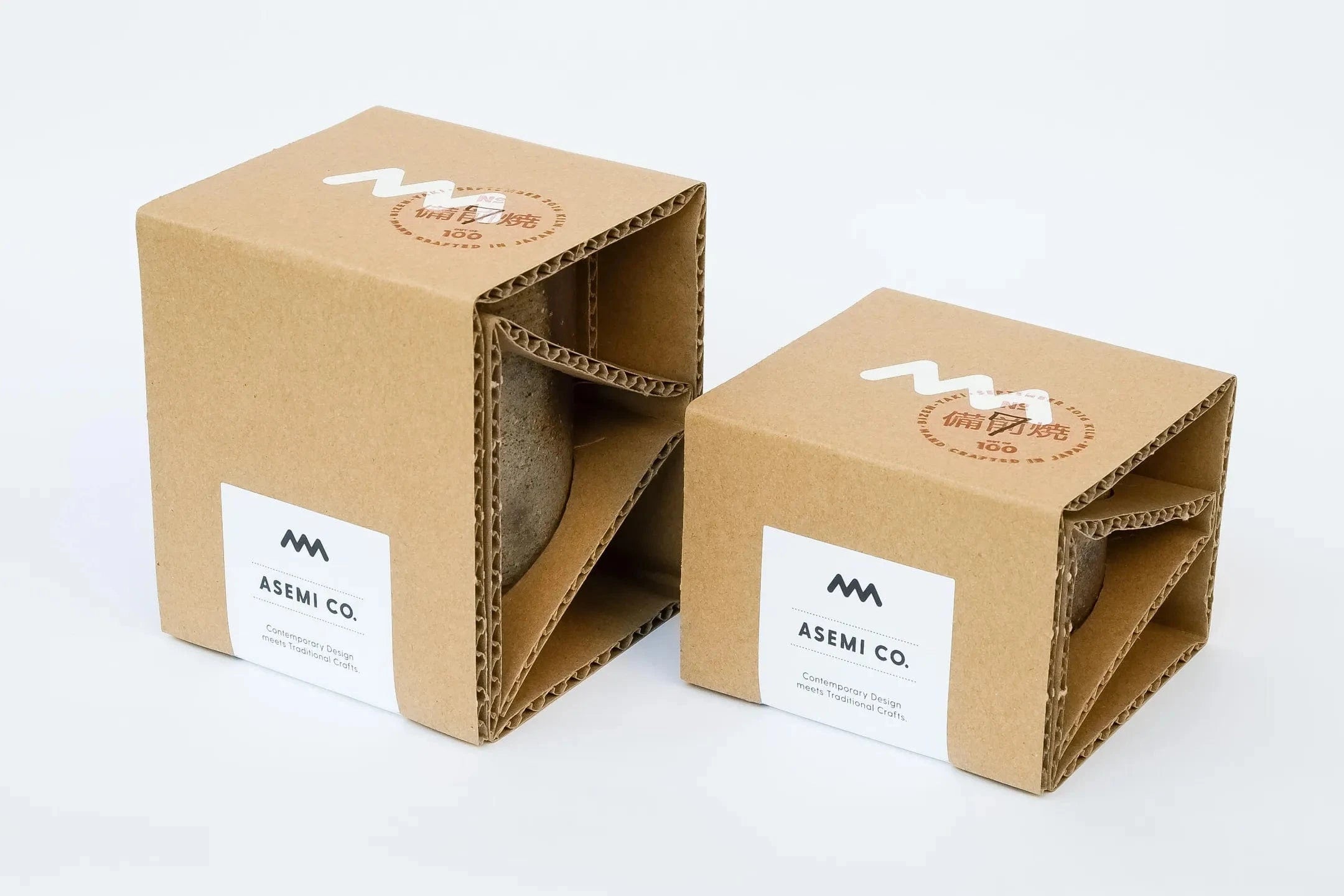

Bizenyaki Cup – Large (Limited Edition)
Fast & Secure Delivery from Japan to your Door [Shipping Policy]
No surprise U.S. customs fees. [How we handle U.S. Customs for you]
Shop Safely with Encrypted Checkout and Verified Gateways.
Pairs well with

Bizenyaki Cup – Large (Limited Edition)
Timeless Flame-Fired Craftsmanship
Experience the quiet power of tradition with the Bizenyaki Cup L by Asemi Co., a refined union of contemporary design and centuries-old craftsmanship. Handmade in Okayama, this large Bizen Ware cup is unglazed and flame-fired, allowing natural ash and fire to sculpt one-of-a-kind textures and earthy gradients into every piece.
Its cylindrical form is elegant and understated, making it equally at home in a minimalist kitchen or a traditional tea setting. With a generous capacity of 7.8 oz (230 ml), it is perfect for tea, sake, or even modern table use.
This item is part of an exclusive series—only 100 cups are crafted every six months, ensuring each piece remains truly unique and collectible.
Asemi Co.'s signature commitment to preserving regional Japanese ceramics while introducing contemporary aesthetics makes this cup a meaningful addition to any collection or a perfect gift for lovers of authentic, artisan ware.
Product Information
Care instructions
Note
FAQs
All you need to know about the Japanese Pottery Styles.
What are the major traditional styles of Japanese pottery?
Japan is home to a rich diversity of regional pottery styles, each with distinct techniques and aesthetics. Notable types include:
Bizen ware (備前焼): Unglazed stoneware fired for days, known for its earthy, fire-marked surface.
- Shigaraki ware (信楽焼): Rustic, coarse clay pieces with ash glaze and warm tones.
- Oribe ware (織部焼): Recognized by green copper glaze and bold asymmetrical designs.
- Shino ware (志野焼): Thick white glazes with soft textures and iron brushwork.
- Kutani ware (九谷焼): Vivid overglaze porcelain with rich, multicolored painting.
- Hasami ware (波佐見焼): Refined porcelain with clean forms and modern simplicity.
- Arita ware (有田焼): Delicate blue-and-white porcelain, often highly decorative.
How are these traditional styles used in modern homes?
While rooted in history, Japanese pottery is widely used today for both everyday and decorative purposes.
- Bizen and Shigaraki ware are often used for flower vases, tea utensils, or minimalist home décor.
- Hasami and Arita ware are favored for daily tableware due to their durability and elegant simplicity.
- Oribe and Shino ware are appreciated for tea ceremony use, but are also integrated into eclectic dining sets.
- Kutani ware is typically used for formal dining and artistic display due to its vivid ornamentation.
Can traditional Japanese pottery go in the microwave or dishwasher?
It depends on the style and glaze.
- Porcelain types like Hasami and Arita are usually microwave and dishwasher safe.
- Stoneware types such as Bizen or Shigaraki, which are porous and unglazed, should be hand-washed and kept out of microwaves.
Always check product-specific care instructions, as handmade items may vary.
Are Japanese pottery pieces suitable for Western dining settings?
Absolutely. Japanese ceramics pair beautifully with Western cuisine and interiors. Their natural textures, varied glazes, and elegant imperfections add warmth and individuality to any table. For example:
- A Shino ware bowl elevates pasta with rustic charm.
- A Kutani porcelain plate makes desserts visually stunning.
- A Bizen sake cup can be repurposed as an espresso shot glass or dipping bowl.
Why is handmade Japanese pottery often more expensive?
Handmade Japanese pottery reflects generations of skill, regional materials, and artisanal firing methods. The unpredictability of wood-fired kilns, hand-glazing, and limited production runs all contribute to each piece’s uniqueness—and value. In contrast to mass-produced ceramics, you're purchasing a piece of living cultural heritage. Many customers find that the emotional resonance and durability of these pieces more than justify the price.

